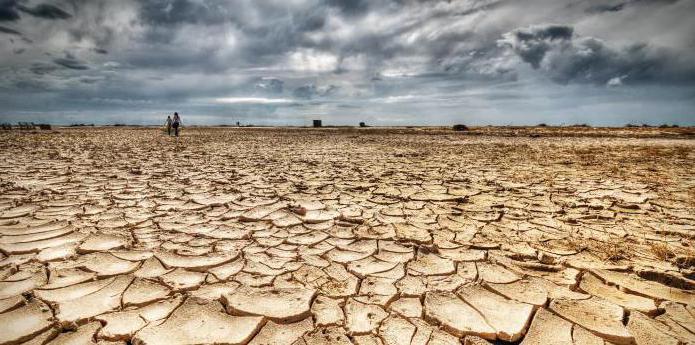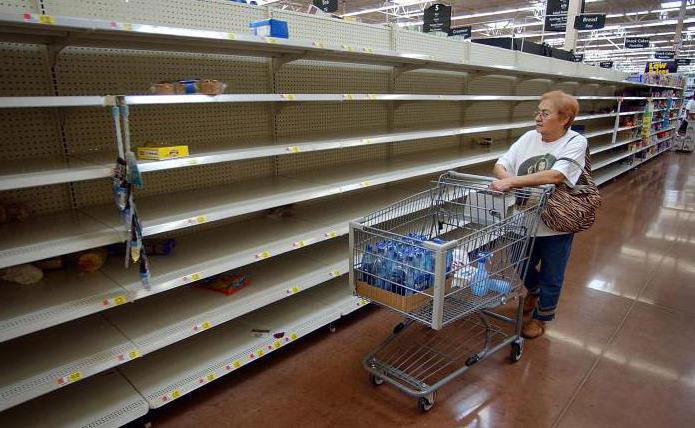Deficit is a phenomenon in which there is a lack of finance or material values. If you trace the factors that determine this result, you can competently fight them.
Shortage of trade
The shortage of goods can be considered a sign of a situation when the demand for a particular product of a particular production exceeds its supply. And the supplier is simply not able to fully satisfy the needs of customers. Such a phenomenon can occur even in cases where the economy operates according to a carefully planned scenario.
 However, deficit is a phenomenon that appears much more often in conditions of uncertainty inherent in the market. If the cost is constantly changing, there is a state of lack of equilibrium, which, however, can be adjusted. To do this, they begin to raise prices. Deficit is a situation in which the popularity of a product among buyers does not play into the hands of manufacturers.
However, deficit is a phenomenon that appears much more often in conditions of uncertainty inherent in the market. If the cost is constantly changing, there is a state of lack of equilibrium, which, however, can be adjusted. To do this, they begin to raise prices. Deficit is a situation in which the popularity of a product among buyers does not play into the hands of manufacturers.
A small plus for the seller
There is scope for more money. Thus, between the cost and the selling price there will be a large monetary “layer”. Even when it exists, people still will not lose interest in the product. Due to the incoming funds, it is possible to increase the volume of production, due to which the problem itself will simply cease to exist, because the deficiency will be closed.

Natural adjustment processes
However, if we are talking about a planned economy, which is less flexible than a market economy, this maneuver cannot be done here. More difficult is the task to suppress the causes of the deficit. State regulation of prices is not as effective as filling such gaps naturally. As an organism that tempers its immunity in the fight against the disease, so the economy should be able to recover not due to artificial intervention, but thanks to its own characteristics. This method will be the most reliable. If the adjustment is not carried out in this way, it may happen that undesirable effects are delayed.
In such cases, the state, as represented by the regulatory body, sets higher prices for goods or overstates production quotas. If you act carelessly, there is overstocking of warehouses, which become full of goods not sold. The phenomenon, for example, was observed in the Soviet Union when scarce goods were sold only when they lost liquidity.

Lack of funds
A deficit is a phenomenon that can also affect the budget of an organization or the entire financial system of a country. The balance between receipts and disbursements is very important here. A funding gap is a problem a country may face when its treasury is empty and people still need to be paid.
This situation can be caused by economics, politics and even nature, as well as a number of other reasons. Taxes and other income may not be sufficient to cover expenses. For the normal functioning of the country, it is important to establish harmony between these two manipulations. This can be achieved with the competent organization of all processes that take place in the economy. Why do you need to calculate in advance how much money you need to give out in order to collect and add the money supply to the budget. In extreme cases, borrowing is used.
The need for a plan
If you envisage the state of the total amount of state values, which will be after a while, you can protect yourself and your citizens from unpleasant surprises. Otherwise, a situation will arise when all life processes and mechanisms in the country simply freeze. Money is the equivalent of those goods that are daily reproduced and consumed by the inhabitants of the country.
 When preparing a budget plan, economists must correctly calculate the income deficit. If this may occur, some professionals advise creating a surplus, which means the formation of an insurance stock that does not allow expenses to exceed revenues. However, this also can not always lead to positive consequences. The economy will be overloaded, the efficiency of using money will become lower. The ideal situation is when there are no distortions to either side. Only in this way can any negative phenomena be avoided.
When preparing a budget plan, economists must correctly calculate the income deficit. If this may occur, some professionals advise creating a surplus, which means the formation of an insurance stock that does not allow expenses to exceed revenues. However, this also can not always lead to positive consequences. The economy will be overloaded, the efficiency of using money will become lower. The ideal situation is when there are no distortions to either side. Only in this way can any negative phenomena be avoided.
How to get out of this situation?
There are a number of measures that are used in standard practice to improve the situation. Those who plan the budget usually take the following steps:
- They reduce budget expenditures, establish certain amounts of expenditures for individual institutions, beyond which funds are simply not wasted.
- Revenues are distributed between funds of various levels in accordance with their spending powers.
- To maximize the money supply, additional reserves are found on the state’s account by monitoring the work of institutions directly receiving this money.
- Regulation in this area may become outdated; therefore, it is necessary to periodically upgrade it.
- Expenses should be clearly planned, due to which income growth can potentially occur due to actions that stimulate the processes of the economy. In this case, social problems are effectively overcome.
- Deductions from accounts are done sparingly; costs that are not essential are not incurred.
- Borrowing should provide an influx of currency and values, as well as the reliability associated with confidence and freedom to conduct various settlement transactions.
 This situation can happen in any market. The main thing is to correctly approach the process of solving it.
This situation can happen in any market. The main thing is to correctly approach the process of solving it.
